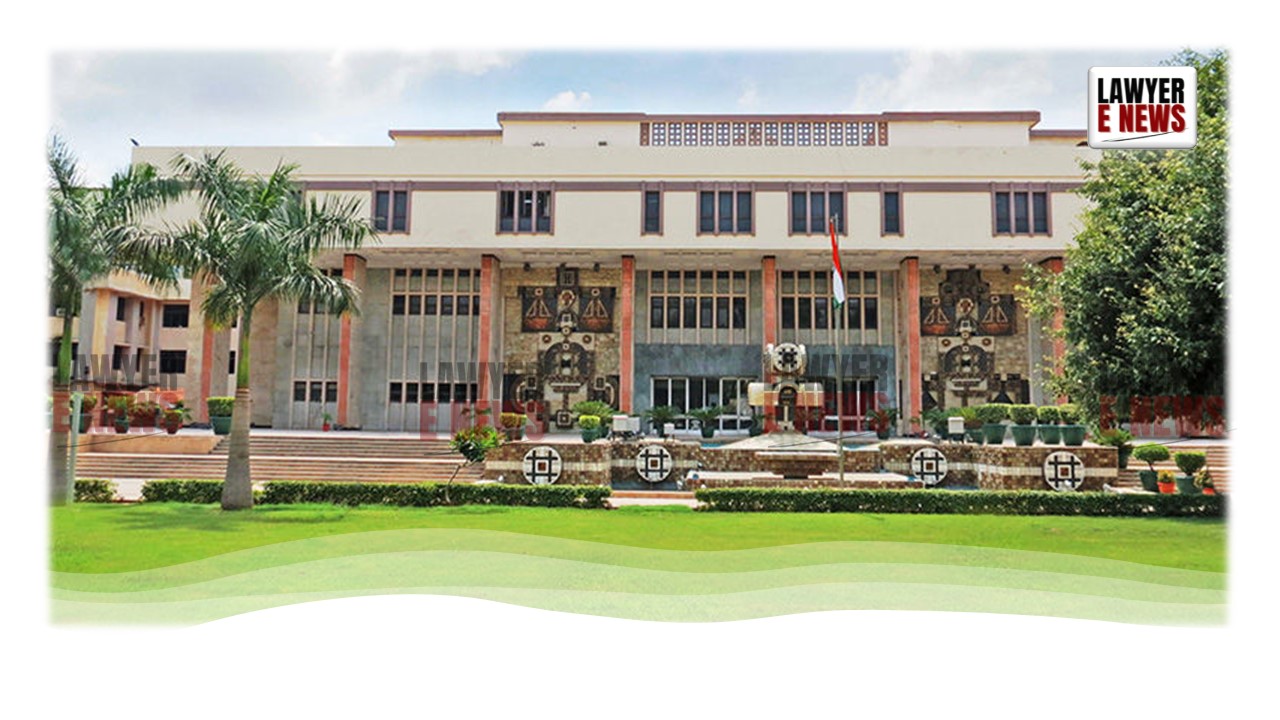-
by sayum
21 February 2026 2:44 PM



“No Right to Continue Using Club After 21 Without Membership”: Delhi High Court rejecting the appeals of several individuals who had challenged the termination of their rights to use the Club’s facilities after crossing the age of 21. These individuals, referred to as “Green Card Holders,” were former dependents of permanent Club members and had been allowed to continue using the Club under a long-standing but informal system that was not rooted in the Club's Articles of Association. The Court held that the Green Card system was void ab initio and that continued access without formal membership was legally untenable.
The appellants were previously dependent children of permanent members of the Delhi Gymkhana Club, who, after crossing the age of 21, continued to access the Club’s facilities as “Green Card Holders.” Although the Articles of Association (AoA) allowed dependent access between the ages of 13 and 21, there was no formal provision authorizing continued use beyond 21 without applying for full membership.
The issue came under scrutiny after the Ministry of Corporate Affairs launched an investigation into irregularities at the Club, particularly in relation to membership practices. A petition before the National Company Law Tribunal (NCLT) led to the appointment of an Administrator and the formation of the Naidu Committee to investigate alleged violations.
The Naidu Committee’s first phase report dated January 27, 2022, declared the Green Card system void from inception. Acting on this, the Administrator directed the suspension and eventual termination of all Green Card facilities by notices dated March 8, 2022, and March 31, 2022, respectively. These actions were challenged before the Delhi High Court, where a Single Judge dismissed the pleas for interim relief. The present appeal arose from that dismissal.
The central issue was whether individuals who had continued using Club facilities after crossing 21—based solely on an informal practice and payment of fees—could claim enforceable legal or contractual rights.
The Court held unequivocally that the appellants could not claim such rights. Justice Amit Mahajan, writing for the Bench, observed:
“A plain reading, prima facie, reveals that the said Articles have been incorporated for a limited purpose – to allow dependents to use the facilities until they attain the age of 21, on payment of certain monthly subscription... However, the same do not confer an independent right on the dependent children to continue using the facilities despite not being full members.”
The Court stressed that the system of Green Cards—adopted by various Club Committees over the years—was an informal privilege and not sanctioned by the AoA. It observed that:
“By adopting such a practice, a new category of members has been created without there being any express provision in the AoA.”
The Court referred to Article 13(3b) of the AoA, which states that sons of members must apply for full membership upon turning 21 if they wish to continue using the Club. Similarly, Article 13(3c) provides limited continuation rights to unmarried daughters living with parents, but does not grant independent membership or privileges.
Rejecting the claim that past practices could override formal governance documents, the Court emphasized:
“Implied contracts cannot override express contracts. Where the AoA prescribes specific rules governing access and membership, no custom, however longstanding, can be invoked to defeat or bypass those terms.”
The appellants had also argued that the termination of access violated the principles of natural justice, as no personal hearing was granted. However, the Court clarified that the termination was part of a larger structural correction mandated by judicial authorities to bring the Club’s operations in line with the law.
“The act of Respondent No. 1 Company to suspend and thereafter terminate the privilege granted to the appellants finds its root in the Naidu Committee Inquiry Report... Even otherwise, the appellants were not members of Respondent No. 1 company and only had the right to use the facilities which were conferred by the acts of the Committees at the relevant time, which, prima facie, were in contravention of the AoA.”
The Court also addressed the financial aspect, noting that the Club had collected over ₹4.5 crores through penalties and fees from Green Card Holders, which was later found to be in violation of the Companies Act, 2013. The Naidu Committee, supported by the NCLT and NCLAT, had called for the refund of such sums and a discontinuation of the system.
In affirming the Single Judge’s ruling, the Division Bench found no grounds to interfere with the discretionary refusal to grant interim relief. It relied on established principles of interlocutory jurisdiction, stating:
“The view taken by the learned Single Judge is a plausible one and, in our opinion, the discretion has not been exercised arbitrarily or perversely or by ignoring the settled principles of law regarding the grant or refusal of interlocutory injunctions.”
The Court further stated that even if a contract existed between the Green Card Holders and the Club, such contracts were inherently terminable and could not be specifically enforced under the Specific Relief Act, 1963:
“According to Section 14(d) of the Specific Relief Act, contracts of a determinable nature cannot be specifically enforced. Additionally, Section 41(e) prohibits the granting of an injunction to prevent the termination of such contracts.”
The Delhi High Court’s judgment in Siddhaant Mohta v. Delhi Gymkhana Club reaffirms the supremacy of a company’s constitutional documents over informal customs and discretionary practices. It decisively holds that “Green Card” privileges granted beyond the statutory framework are not enforceable rights and cannot be continued merely on the basis of past usage or payment. The decision not only upholds legal discipline within corporate governance but also sends a strong message against informal and opaque membership practices in elite institutions.
Date of Decision: May 22, 2025
